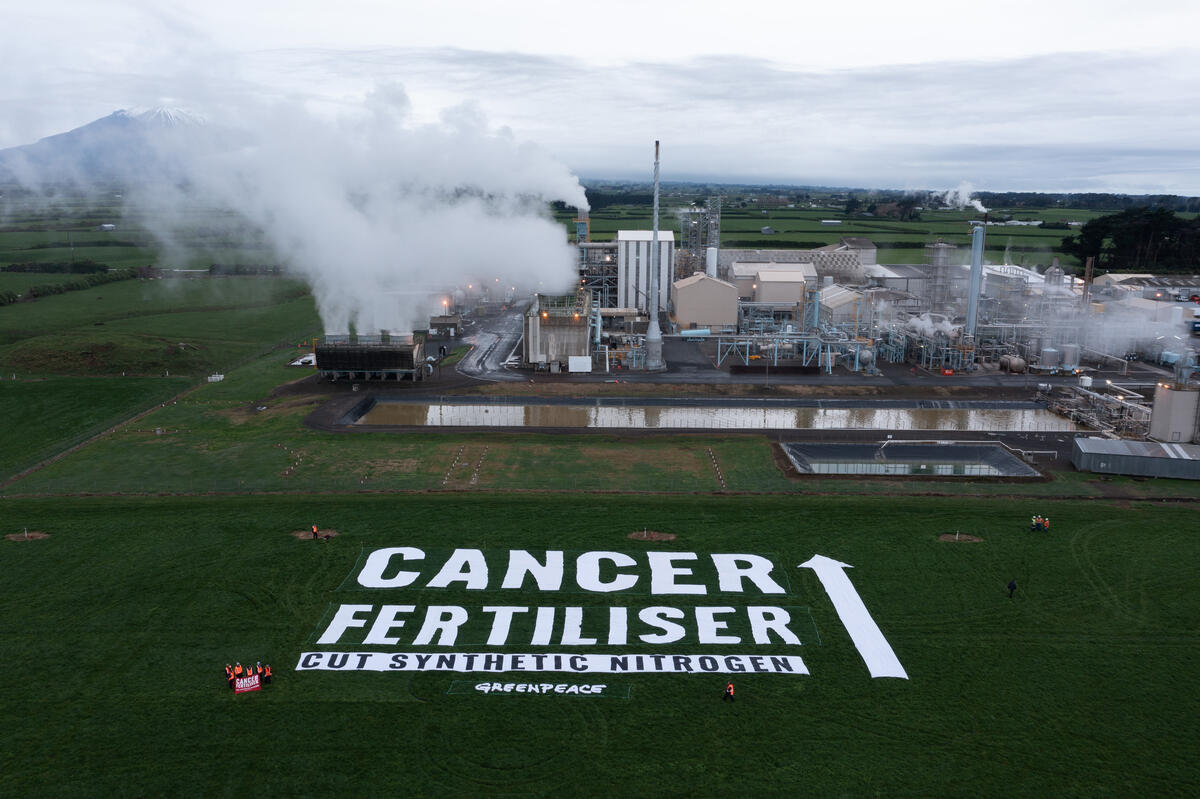Greenpeace is calling the Government’s “tough on crime” rhetoric a complete sham after official documents reveal companies repeatedly breaking food safety laws are escaping prosecution.
Documents released to Greenpeace show that since 2021, four companies were caught selling food with illegally high levels of pesticide residues on multiple occasions. Yet, in the past nine years, the Government has not prosecuted a single company for pesticide residue breaches.
Greenpeace spokesperson Gen Toop said: “Every New Zealander has a right to safe, healthy food, but this shocking enforcement failure means that illegally high levels of hazardous chemicals are ending up on our plates.
“Even after uncovering repeated breaches of pesticide residue laws by multiple companies, the Government has failed to take a single prosecution in almost ten years.
“These documents expose the Government’s two-tiered justice system: it’s tough on crime for ordinary people, but soft on crime for powerful agribusiness,” says Toop.
Food safety regulations in Aotearoa prohibit the sale of food with pesticide residues above what’s known as the maximum residue limit (MRL). New Zealand Food Safety (NZFS) is the Government agency responsible for monitoring and enforcing these rules.
In the documents, NZFS claims “in serious cases, enforced compliance action can, and is taken”. Greenpeace says companies have committed serious breaches in the last nine years and still evaded prosecution.
In 2022/23 NZFS found food with the organophosphate, methamidophos on it at levels thirty times above the legal limit. Methamidophos is so toxic it was banned in New Zealand last year.
“This Government’s “tough on crime” rhetoric is a complete sham. Instead of cracking down on companies that use agrichemicals illegally, the Government is letting serious offences and repeat offenders off the hook entirely.”
ACT party Ministers David Seymour and Andrew Hoggard have announced the Government is planning to “cut red tape” in hazardous chemical management in New Zealand. An open letter opposing the plan has garnered over 26,000 signatures
“This Government is putting the profits of chemical corporations and agribusiness ahead of the health of people and our environment. They need to do a complete 180 on this approach, start actually cracking down on illegal pesticide use, and strengthen, not weaken, our chemical laws.”




